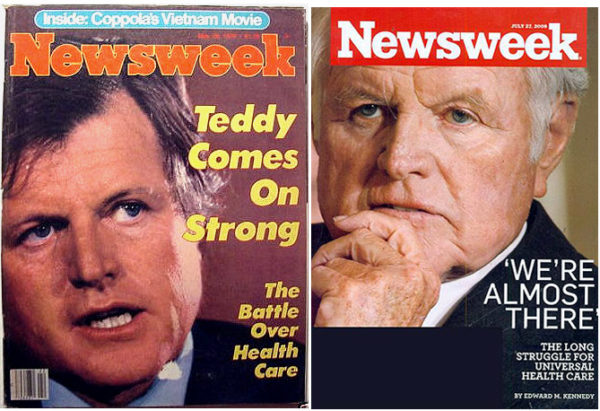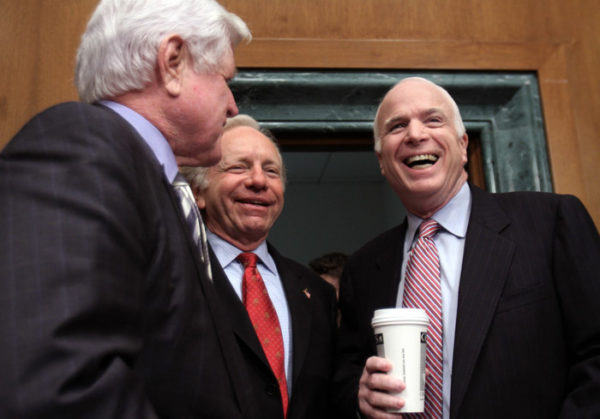Notes
Losing Kennedy

[W]e cannot have a fair prosperity in isolation from a fair society. So I will continue to stand for a national health insurance. We must — We must not surrender — We must not surrender to the relentless medical inflation that can bankrupt almost anyone and that may soon break the budgets of government at every level. Let us insist on real controls over what doctors and hospitals can charge, and let us resolve that the state of a family’s health shall never depend on the size of a family’s wealth.
The President, the Vice President, the members of Congress have a medical plan that meets their needs in full, and whenever senators and representatives catch a little cold, the Capitol physician will see them immediately, treat them promptly, fill a prescription on the spot. We do not get a bill even if we ask for it, and when do you think was the last time a member of Congress asked for a bill from the Federal Government? And I say again, as I have before, if health insurance is good enough for the President, the Vice President, the Congress of the United States, then it’s good enough for you and every family in America.
— Ted Kennedy’s 1980 Democratic National Convention Address
I almost posted the edition on the right a few weeks ago. As a cover pick, I thought that Kennedy was being highlighted by default, given the lack of effective symbolism and/or a more vigorous and clear cut champion of health care reform. With his passing, of course, the cover becomes fundamentally more about the man, his career and his dedication than it does to moving the health care issue — an irony only amplified by the May ’79 cover on the left.
But Kennedy’s essence was first and last about the fight. For that reason, he would have been fundamentally disappointed if we were to put politics aside, even for a minute, rather than use his death as a rallying cry. Enough of the right-wing fear mongering and Democratic triangulation and obstructionism. Really, thirty years between these covers? Can you imagine?
…And for the feeling of the man (if you didn’t grow up on him and thus don’t have all those phrases still echoing in your head), listen the end of the speech from the speech file linked to above, and experience everything happening in his voice, especially where his family and poetry come to bear:
And may it be said of us, both in dark passages and in bright days, in the words of Tennyson that my brothers quoted and loved, and that have special meaning for me now:
“I am a part of all that I have met
To [Tho] much is taken, much abides
That which we are, we are —
One equal temper of heroic hearts
Strong in will
To strive, to seek, to find, and not to yield.”
For me, a few hours ago, this campaign came to an end.
For all those whose cares have been our concern, the work goes on, the cause endures, the hope still lives, and the dream shall never die.
(image 1: Still looking. Newsweek Magazine. May 28 1979 via ebay/moremagazines. image 2: Still looking. Newsweek Magazine. Jul 18, 2009. Issue dated Jul 27, 2009)


Reactions
Comments Powered by Disqus